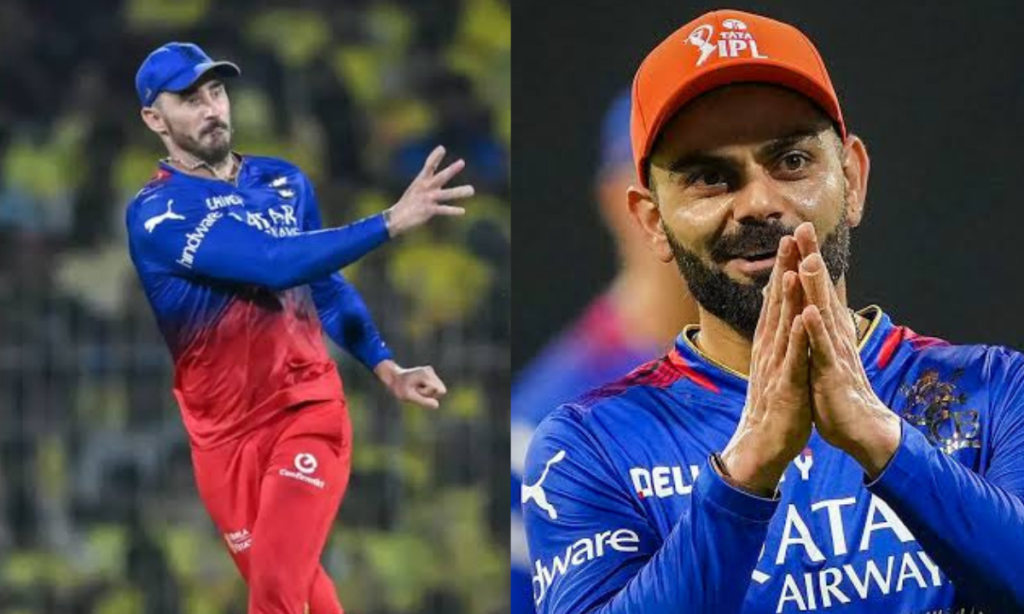As the IPL auction for 2025 approaches, Royal Challengers Bangalore (RCB) faces pivotal decisions regarding player retentions. Among these, the retention of Faf du Plessis, who has been a key figure in the team’s leadership and batting lineup, stands out as particularly contentious. Here are three compelling reasons why RCB might consider not retaining du Plessis:
1. Leadership Transition and Team Dynamics:
Faf du Plessis has been instrumental in guiding RCB, but the team’s consistent failure to clinch the title might suggest a need for a change in leadership style or strategy. Leadership in cricket, especially in a high-pressure league like the IPL, requires not just tactical acumen but also the ability to adapt to evolving team needs. Du Plessis’s approach, while effective in many aspects, might not align with the aggressive, dynamic style that RCB’s young and upcoming players could benefit from. A new captain could bring a fresh perspective, potentially reigniting the team’s spirit and strategy, aiming for that elusive IPL trophy.
2. Performance and Form:
While du Plessis has been a reliable performer, his recent form and impact in crucial matches have been under scrutiny. Cricket, especially T20, demands peak performance consistently, and any dip can affect team morale and strategy. RCB’s think tank might be looking at players who can offer that extra edge, particularly in the powerplay or death overs, areas where du Plessis’s contributions have been less impactful compared to his international performances. The decision could also be influenced by the availability of other international stars or promising young talents who might offer more in terms of versatility or match-winning performances.
3. Financial Strategy and Squad Building:
The IPL auction isn’t just about retaining star players but also about financial strategy. Retaining du Plessis means committing a significant portion of the salary cap to one player, which could limit RCB’s ability to build a well-rounded squad. With the IPL becoming more competitive, having a balanced team with depth in both batting and bowling is crucial. By not retaining du Plessis, RCB could free up funds to invest in a robust bowling attack or another dynamic batsman, addressing areas where the team has historically struggled. This approach could also signal to the market RCB’s intent to rebuild or refresh their squad, potentially attracting different talents or strategies.
The decision not to retain Faf du Plessis would be a bold move, reflecting RCB’s commitment to evolving beyond the current setup. It’s not just about replacing du Plessis but reimagining the team’s structure, possibly with a younger, more aggressive captain or a different leadership style that could better harness the potential of RCB’s talented roster.
However, this analysis isn’t without its counterpoints. Du Plessis’s experience, his ability to anchor innings, and his leadership during critical moments have been invaluable. His departure could lead to a leadership vacuum unless RCB has a clear succession plan or a proven alternative ready to step up. Moreover, his presence has been a stabilizing factor for players like Virat Kohli, providing a seasoned partnership at the top.
While there are strategic reasons for RCB to consider not retaining Faf du Plessis, such a decision would need careful consideration of the team’s long-term vision, the immediate impact on team dynamics, and the financial implications. Whether RCB opts for continuity or change, the IPL auction will be pivotal in shaping their future campaigns.

